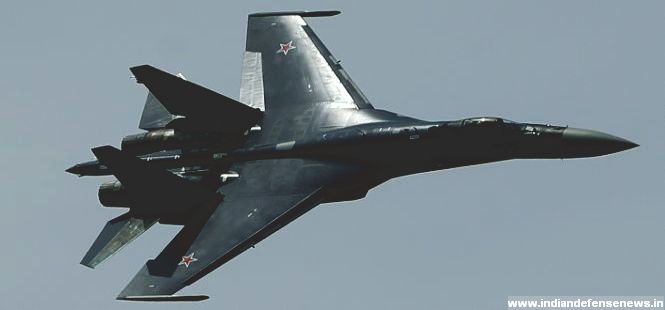
by Charles Bronson
1) Technical:
As quoted by Pakistani analyst and former pakistan air force pilot Kaiser Tufail himself:
-- “Switching to a small number of Russian and Chinese aircraft would not be a good idea from the point of view of maintainability, as it would entail major investments in new back shops, test benches and many more maintenance facilities.”
-- "We have the infrastructure to simply add F-16 aircraft into the system, something that would not be so easily doable in case of Russian or Chinese systems."
-- "The fact that the Americans can use the F-16s and such hardware for political leverage must not be lost on us, unless we are ready for a complete break. That would be suicidal, as much of the high-tech element of the [Pakistan Air Force] is sourced from the USA,”
The opinion of a former pakistani pilot on this matter clearly indicates that transitioning from single engine jets like F-16 to dual engine aircrafts like Su-35 wouldn't be as easy for PAF or its pilots as it seems. After all he was one of the most vocal supporters of Russo-Pak Su-35 deal, when the talks first emerged in september last year. As experts say, Pakistan Air Force since its inception has been an operator of single engine aircrafts like the Sabres, JF-17, Mirage, F-16s etc., and has almost limited to no experience in operating dual engine comabt jets unlike the IAF which has a considerable experience of operating both. Because of this reason, Pakistan is likely to stick with single engine aircrafts in the future too which also somehow explains Pakistan's never ending obsession and an insatiable appetite for F-16s.
2) Economy and Expenditure
Pakistan is in the process of inducting a large fleet of JF-17 thunders, taking the total strength of its JF-17 fighters to more than 200 by 2020. It is important to note that Pakistan wants to use JF-17 fighters as the mainstay of its fighter-bomber fleet and therefore is inducting them in large numbers. Pakistan has also recently diverted extra funds for the upgradation and modernisation of its naval fleet to counter Indian navy in the Arabian sea. It is also in the process of acquiring additional submarines from china. Plus, recently it had floated tenders for acquiring AWACS and mid-air refuellers, both of which combined can cost easily upto a billion dollars. Lastly, to match India's capabilities PAF airforce chief had said that they would like to acquire China's 5th gen aircraft currently under development. Now given Pakistan's meager defence budget, it is highly doubtful that it can achieve all these goals simultaneously. Moreover, a Su-35 ($ 45-50 million) aircraft costs nearly 3 times as much as the F-16 ($ 20 million). Pakistan can think of buying Su-35 aircrafts from Russia only when it forgoes its military modernisation programs in other areas.
3) Politics and Diplomacy
-- USA mindful of the fact that any failure on its part to supply Pakistan with military hardware, will undoubtedly draw ire of the powerful military chiefs who will start looking elsewhere in order to maintain parity with india. And the most lucrative market for the cash-stricken country like Pakistan is Russia, which provides equally competent hardware albeit at a much lower price compared to their western analogues. And losing this customer in Pakistan would not only mean less profits for american giants such as Lockheed Martin but most importantly would result in weakening of the political influence the US has over pakistan. So US would try its best to keep Pakistan contented and happy and thus maintain its poltical leverage by occasionally pumping it with military hardware and thus preventing it from drifting into the Russian camp.
4) Fraternal Relations
-- Last but not the least, the ever strong "fraternal" relations between Russia and India. More than the historical friendship, Russia would find it hard to jeopardise its multi-billion dollar defence market in India, which benefits its economy substantially. No matter how close Pakistan and Russia get, the latter knows that Pakistan can never replace India in terms of a potential arms market. Any amount of Hi-Tech weaponry sold to Pakistan and that too in good numbers, which could possibly mitigate the conventional advantage enjoyed by India will put the Indo-Russian trade relations at risk.
5) Logistical Reasons
Pakistan cannot win a long drawn out conventional war against India. It will be a final nail in the coffin for its already ailing economy, if they ever get entangled in a military stalemate like situation with India. Not surprisingly, because of this very reason Pakistan has clearly declared that it will not hesitate to first use Nuclear Weapons in order to bring an early conclusion to the war. It is just not their technological and numerical inferiority as compared to India but also a lack of military industrial base and support structure to sustain a long lasting conventional military operation.
Charles Bronson is an avid Defence enthusiast and a great Fan of IDN. This piece is an adaption of his comments in a post on IDN. Views expressed are his own.
Admin - IDN